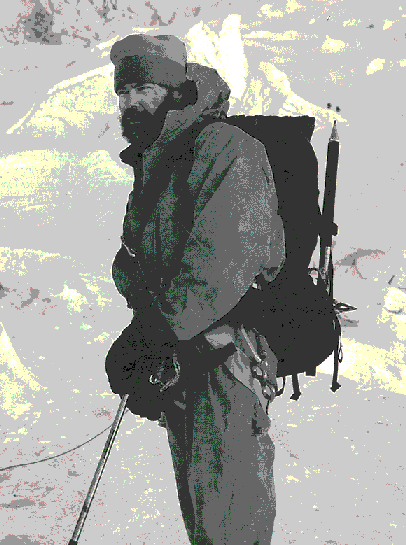 Question: After completing his climb of Everest and surviving, was the reward of climbing the world's tallest mountain important to Mr. Krakauer at the time?
Question: After completing his climb of Everest and surviving, was the reward of climbing the world's tallest mountain important to Mr. Krakauer at the time?“It would be many hours before I learned that everything had not in fact turned out great-later I discovered that nineteen men and women were stranded up on the mountain by the storm, caught in a desperate struggle for their lives” (page 255).
Answer: On May 13th, after a difficult climb through Camp Three, Camp Two, Camp One and the Icefall, Jon Krakauer and what was remaining of his expedition, including Beck Weathers, descended into Base Camp, completing their journey from their normal lives to the top of the world. The select few people in the world that have achieved this feat normally are very happy when they get back to Base Camp because it completes years of hard work, many weeks of suffering through injuries, altitude sickness and many other conflicts and complications and the final stage of an archetypal journey that was a dream for many of them to complete.
However, as Jon Krakauer and what was remaining of his expedition, including Beck Weathers, descended into Base Camp, they didn't celebrate or reflect on the feat they had just completed. They couldn't and wouldn't do this due to the awful events that occurred on the mountain during their climb which they did during the deadliest storm in Mt. Everest history. All told, a dozen people died on Everest that season, changing the survivors lives, including Jon Krakauer’s forever.
Due to the many friends and fellow mountaineers that were lose on the mountain by the survivors of the climb, Mr. Krakauer's completion of his childhood dream and reward of knowing that he could do anything that he wanted if he tried weren't important to him. In fact, he didn't even reflect positively about his success. Instead, he wrote about how each climber, whether in his expedition or not, would be missed by him and his fellow survivors because they all helped him and his friends along the way. Each climber on the mountain played a vital role for the other climbers as they helped each other mentality, physically or spiritually at some point during their journey to the summit.
Therefore, Jon's reward that came with the completion of his archetypal journey wasn't important to him at all as he and his fellow survivors descended into Base Camp. So, instead of celebrating his achievements with the others at Base Camp, he attended a memorial for everyone that died on the mountain while many of the surviving climbers were air lifted to area hospitals by helicopters due to various injuries. This memorial and the events that occurred on the mountain changed Jon's life forever so due to the magnitude and scale of this catastrophe, less than a year after the horrific tragedy happened; Mr. Krakauer published a book on the events that transpired on the mountain. The book’s title: Into Thin Air.
 Question: How was the fact the book Into Thin Air had a long ordeal significant to the plot of the story?
Question: How was the fact the book Into Thin Air had a long ordeal significant to the plot of the story? Question: How is the approach of the inmost cave by the BFG and Sophie significant to the rest of their journey and the plot of the story?
Question: How is the approach of the inmost cave by the BFG and Sophie significant to the rest of their journey and the plot of the story? Question: How did the tests and enemies of the Giant Country, the Special World in Sophie's journey, cause the friendship between Sophie and the BFG to become stronger?
Question: How did the tests and enemies of the Giant Country, the Special World in Sophie's journey, cause the friendship between Sophie and the BFG to become stronger?




 After completing Norah McCormick's Dooley Takes The Fall, I decided to continue my reading of books that are extremely exciting and impossible to put down. So, I decided to read Into Thin Air by Jon
After completing Norah McCormick's Dooley Takes The Fall, I decided to continue my reading of books that are extremely exciting and impossible to put down. So, I decided to read Into Thin Air by Jon  "So instead of doing what he wanted to do-find Gillette and Landers-he went down to the ravine"(Norah McClintock, Dooley Takes The Fall, Page 151)
"So instead of doing what he wanted to do-find Gillette and Landers-he went down to the ravine"(Norah McClintock, Dooley Takes The Fall, Page 151)
